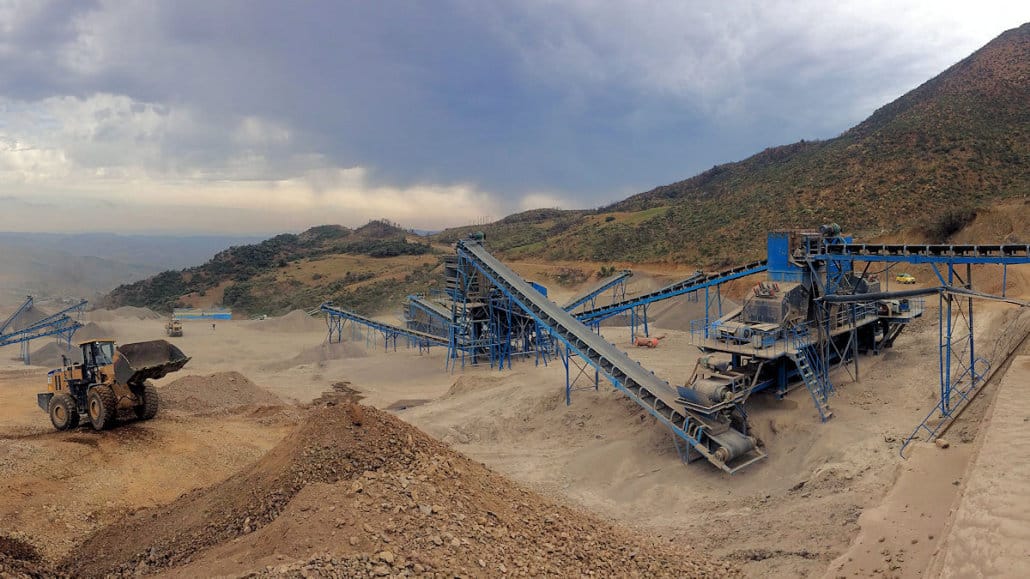By Schalk Burger
First published on Mining Weekly
Establishing a beneficial ownership registry in South Africa will help to improve financial transparency, the transparency of value chains and provide information for companies and the public about companies and who owns and controls them.
These were some of the benefits highlighted in two new reports, commissioned by civil society organisation Corruption Watch, that investigated and made recommendations about beneficial ownership transparency (BOT) and the international Extractive Industries Transparency Initiative (EITI).
“South Africa’s mining sector has various risks and corruption vulnerabilities. Corruption Watch has previously produced two research reports on corruption in licensing for mineral rights and prospecting, and another on maladministration and irregularities in the management of community mining royalties in North West and Limpopo,” said Corruption Watch attorney Asiphe Funda.
Corruption Watch’s research indicates there is corruption and vulnerabilities to corruption in the industry, including in the mining companies, government and local government officials and certain local elites. Therefore, Corruption Watch’s BOT project has a dual focus on the resources industry and advocacy for BOT.
The research conducted for the two new reports, released on November 22, has enabled Corruption Watch to ascertain the veracity of the disclosure regime in South Africa, with specific application to extractive industries, and whether this regime creates a satisfactory framework for BOT and tax benefit arrangements that ensure there is adequate State oversight and enforcement of accountability in the industry, she said.
Independent research consultant Michael Barron, who is a veteran of the oil and gas industry, detailed the EITI and the direction of extractive industries policies globally. He highlighted that South Africa has had considerable engagement with and is considering joining the EITI, as are other top mining countries such as Australia.
The EITI provides standards for reporting on extractive industries. It started as an initiative to reconcile extractive industry taxes and receipts by governments in 2003 and has expanded to include a range of governance issues surrounding country’s extractive industry legal frameworks, licensing regimes and other types of payments, such as environmental fees and social payments, he explained during a briefing on November 22.
“While the reporting of information remains at the core of the EITI, the initiative is also about mainstreaming reporting of such information not just in an annual report but at regular intervals and that such information be available to all stakeholders and the public as a matter of course,” he said.
The organisation, which carries out its work within each country through a council consisting of government, industry and civil society representatives, is also building open data systems and makes recommendations to governments and companies about changes in laws and fiscal regimes, among other topics, touching the industry, he added.
“These three constituencies are core to the EITI, and they discuss issues affecting the sector and ensure information is available for the wider communities impacted by extractive industries,” Barron said.
Meanwhile, a beneficial ownership registry provides details of who directly or indirectly benefits from a company, said independent consultant and law consultancy Engaged Law Consulting director Tim Law.
Such a system makes it easy and more cost effective for companies to carry out due diligence processes and identify any potential conflicts or risks by working with or for various suppliers or clients.
A beneficial ownership registry helps to prevent corruption through providing an understanding of who is behind a company. Well-documented corruption in South Africa, such as the Steinhoff fraud and the involvement of the Gupta brothers, are examples of where having an understanding of the people involved could have prevented the transactions taking place.
A beneficial ownership registry requires that owners, beneficiaries and politically exposed persons register their details. This includes foreign owners’ details. These details are available to law enforcement officials and to other stakeholders in various setups.
For example, some countries’ beneficial ownership registries are only available to law enforcement officials, others make the details available only to registered users for a fee and others make non-sensitive information available to all registered users free of charge, he explained.
“A publicly accessible beneficial ownership registry is international best practice, with only sensitive information redacted from public viewing and only in limited situations,” added Law.
A BOT system serves as a tool for communities and stakeholders to hold to account those who own or control companies by providing information on who is behind the name of the gate, he said.
A beneficial ownership registry also ensures that companies that claim to be local companies are owned and run by locals and can help to reduce instances of fronting in terms of broad-based black economic empowerment rules in South Africa, he added.
Meanwhile, intergovernmental financial organisation the Financial Action Task Force (FATF) has 40 recommendations according to which it assesses countries, and two of these, 24 and 25, relate to beneficial ownership.
“South Africa’s effectiveness in implementing measures in this area has been rated as low in the FATF Immediate Outcome 5. South Africa is due to respond to the FATF, which will assess the reply and is expected to provide an update on potential grey listing in February,” Law noted.
“South Africa is making progress on BOT, and the international policy direction is moving towards BOT as part of best practice in the general economy and in extractive industries. The BOT report recommends that South Africa establish a beneficial ownership registry to ensure availability of information about ownership of companies in the country,” he said.

